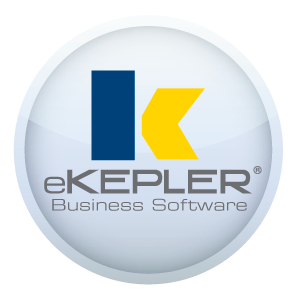In the fast-paced world of business, maximizing Return on Investment (ROI) is paramount. Implementing an Enterprise Resource Planning (ERP) system offers immense potential for boosting efficiency, reducing costs, and driving growth. However, to truly optimize ROI with ERP, businesses must focus on key metrics and employ effective strategies. Let’s delve into the essential metrics and strategies for ensuring ERP success and maximizing ROI:
- Total Cost of Ownership (TCO) Analysis: Begin by conducting a comprehensive TCO analysis, including upfront implementation costs, ongoing maintenance expenses, and potential savings. Understanding the full financial impact of ERP implementation is crucial for setting realistic ROI expectations.
- Time-to-Value (TTV): Measure the time it takes to realize tangible benefits from your ERP investment. Implementing strategies to expedite time-to-value, such as phased rollouts and robust training programs, can accelerate ROI and mitigate implementation risks.
- Operational Efficiency Improvements: Track metrics related to operational efficiency, such as reduced cycle times, increased productivity, and streamlined processes. By quantifying improvements in workflow efficiency and resource utilization, businesses can assess the direct impact of ERP on their bottom line.
- Cost Reductions: Identify and monitor cost-saving opportunities enabled by ERP implementation, such as inventory optimization, procurement efficiencies, and reduced labor costs. Tracking cost reductions across various departments and processes provides tangible evidence of ERP’s financial benefits.
- Revenue Growth: Evaluate the impact of ERP on revenue generation through enhanced sales processes, improved customer relationship management, and faster order fulfillment. By correlating ERP initiatives with revenue growth metrics, businesses can gauge the system’s contribution to top-line performance.
- Quality and Customer Satisfaction: Measure improvements in product quality, customer service levels, and satisfaction scores resulting from ERP implementation. Higher quality standards and improved customer experiences not only drive repeat business but also enhance brand reputation and competitiveness.
- Data Accuracy and Decision-Making: Assess the accuracy and reliability of data generated by the ERP system, as well as its impact on decision-making processes. Reliable data insights enable informed strategic decisions, driving operational efficiency and mitigating risks.
- User Adoption and Satisfaction: Monitor user adoption rates and gather feedback from ERP users to assess satisfaction levels and identify areas for improvement. Investing in user training, providing ongoing support, and soliciting user input can enhance system usability and maximize ROI.
- Scalability and Flexibility: Evaluate the ERP system’s scalability and flexibility to accommodate future growth, technological advancements, and evolving business needs. A scalable ERP solution adapts to changing requirements without significant disruptions, ensuring long-term ROI sustainability.
- Benchmarking and Continuous Improvement: Continuously benchmark ERP performance against industry standards and best practices to identify opportunities for optimization. Implementing a culture of continuous improvement fosters innovation, agility, and sustained ROI growth.
Maximizing ROI with ERP requires a strategic approach, diligent measurement, and continuous refinement. By focusing on key metrics, implementing effective strategies, and leveraging the full potential of ERP, businesses can unlock significant value, drive sustainable growth, and achieve lasting success in today’s competitive landscape.
Ready to take your business to the next level with ERP? Discover how eKEPLER ERP can empower your organization with tailored solutions, expert support, and measurable results. Contact us today to schedule a personalized consultation and learn more about optimizing ROI with eKEPLER ERP.



